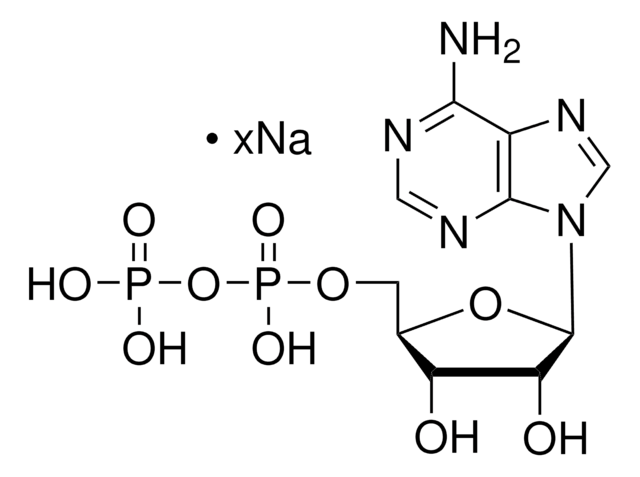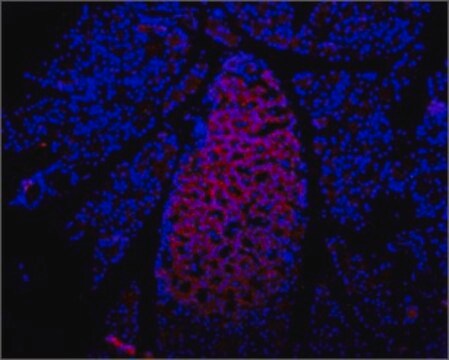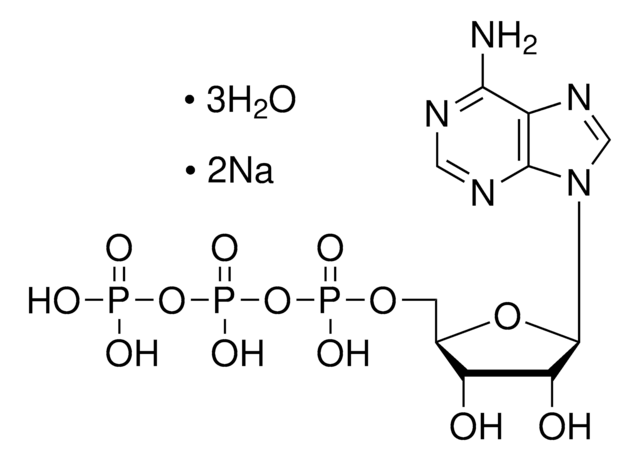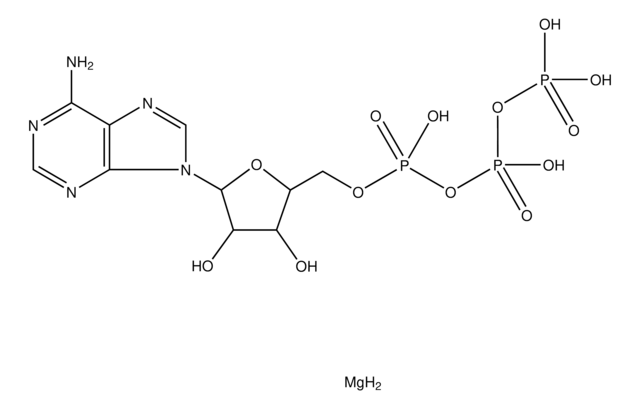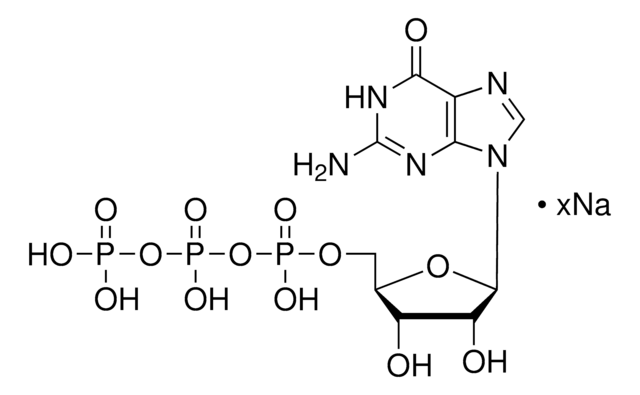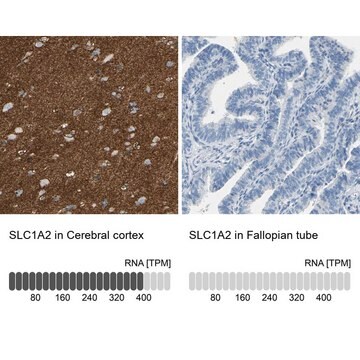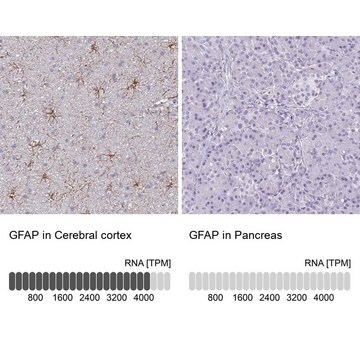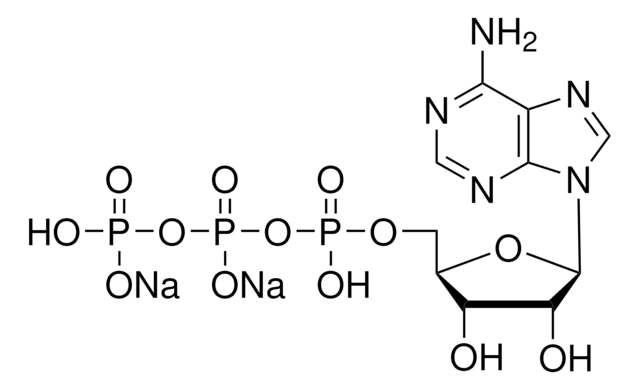P8232
Anti-P2X7 Purinergic Receptor antibody produced in rabbit
affinity isolated antibody, lyophilized powder
Synonyme(s) :
Anti-P2X₇ Antibody, P2X₇ Receptor Detection, Rabbit Anti-P2X₇
About This Item
Produits recommandés
Source biologique
rabbit
Niveau de qualité
Conjugué
unconjugated
Forme d'anticorps
affinity isolated antibody
Type de produit anticorps
primary antibodies
Clone
polyclonal
Forme
lyophilized powder
Espèces réactives
human, mouse, rat
Technique(s)
immunohistochemistry: suitable
western blot: 1:200-1:1,000
Numéro d'accès UniProt
Conditions d'expédition
dry ice
Température de stockage
−20°C
Modification post-traductionnelle de la cible
unmodified
Informations sur le gène
human ... P2RX7(5027)
mouse ... P2rx7(18439)
rat ... P2rx7(29665)
Description générale
Immunogène
Application
- immunoprecipitation
- immunofluorescence and confocal microscopy
- western blotting
Actions biochimiques/physiologiques
Forme physique
Stockage et stabilité
Autres remarques
Clause de non-responsabilité
Vous ne trouvez pas le bon produit ?
Essayez notre Outil de sélection de produits.
Code de la classe de stockage
13 - Non Combustible Solids
Classe de danger pour l'eau (WGK)
WGK 2
Point d'éclair (°F)
Not applicable
Point d'éclair (°C)
Not applicable
Faites votre choix parmi les versions les plus récentes :
Déjà en possession de ce produit ?
Retrouvez la documentation relative aux produits que vous avez récemment achetés dans la Bibliothèque de documents.
Les clients ont également consulté
Notre équipe de scientifiques dispose d'une expérience dans tous les secteurs de la recherche, notamment en sciences de la vie, science des matériaux, synthèse chimique, chromatographie, analyse et dans de nombreux autres domaines..
Contacter notre Service technique
